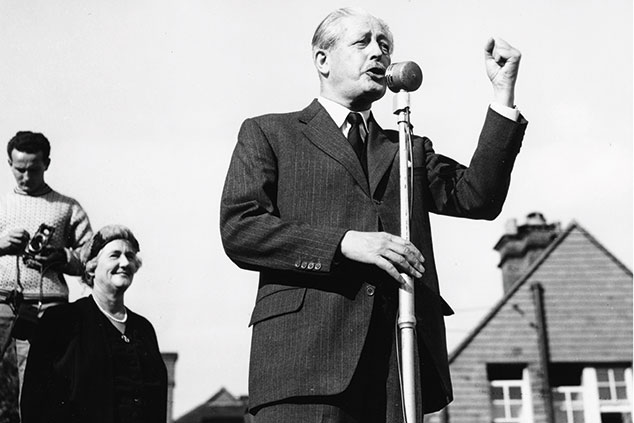
But even if you do accept that our political system could do with a workout, and that the Brexit process is shining a light on both the plumbing of our democracy and the fact that many of our politicians have simply been coasting along for years, I don’t think anyone would pretend that it’s a recipe for confidence-inspiring headlines. “Humiliation”, “shambles”, “crisis” – even by the standards of our daily newspapers, these are not cheerful messages.
And if you look at the financial markets, Britain is hardly punching the lights out. The pound has edged higher, as tends to happen when the prospect of leaving the EU grows less likely, but it’s still at levels we hadn’t seen since the mid-1980s, prior to the 2016 vote to leave.
As for stockmarkets, as the Financial Times pointed out earlier this week, shares in the FTSE Local UK index (which looks at companies which generate at least 70% of their revenue in the UK) have done far worse than the globally exposed ones in the FTSE 100, which, itself, has been a laggard among global markets.
And according to the most recent Bank of America Merrill Lynch survey, global fund managers are still using Brexit as a good excuse to avoid the market altogether – they are a little less “underweight” UK shares than they were a year ago, but they are still at near-record levels of revulsion as far as Britain is concerned.
Given all this, you might assume that Britain was in economic meltdown. In fact, it’s closer to the truth to say that – at this specific moment in time, at least – Britain’s economy is enjoying something of a purple patch.
I suspect that no politician would dare (although never say never) repeat Harold Macmillan’s “most of our people have never had it so good” speech from 1957 in the current climate. But things are nowhere as bad as it might “feel”. This week we learned that employment is at its highest level since records began in 1971.
Unemployment is below 4% for the first time since 1975. Inflation is almost bang on the Bank of England’s target level – regardless of which measure you use. Partly as a result, wages are finally rising at a decent clip in real terms (ie, after inflation). Meanwhile, house-price growth has stalled, which might sound bad, until you remember that much of our current political turmoil is down to the fact that so many people feel “locked out” of the property market.
It’s an important reminder that while politics, the economy and financial markets are intertwined, they often don’t reflect each other in the way you might assume. It’s also a valuable reminder that sometimes the best opportunities arise when investors forget that fact.
A glance at valuations for global markets (via starcapital.de) shows the UK edging into bargain territory – ranking 12th-cheapest out of 40 markets, and not much dearer than Portugal or Hungary.
MoneyWeek readers can get 25% off John’s book on contrarian investing – The Sceptical Investor – at: subscription.moneyweek.co.uk/scepticalinvestor.